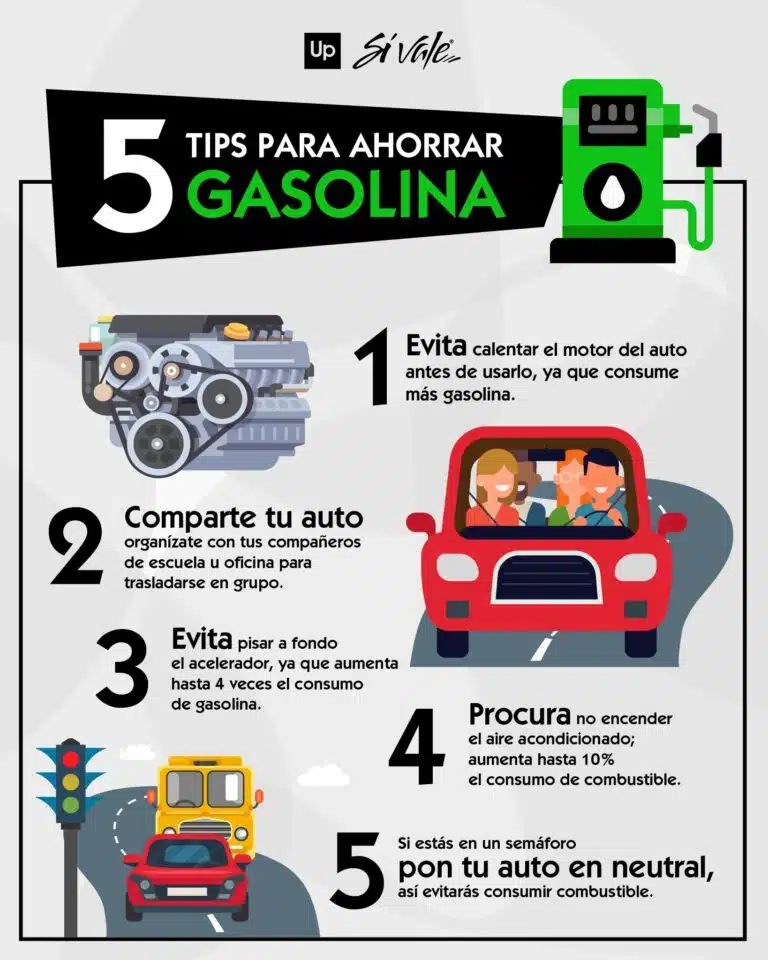How reducing fuel expenses benefits everyone
The reduction of fuel expenditure has become an urgent necessity in a world where resources are limited and environmental awareness is constantly growing. This approach not only has economic implications, but also promotes a more sustainable future for everyone. By reducing fossil fuel consumption, significant benefits can be experienced both at the individual and collective levels. From the improvement of public health to the boost in energy efficiency, every effort made in reducing fuel expenditure contributes to the creation of healthier and more resilient communities. Therefore, adopting practices that minimize energy use is not only the responsibility of a few but is an effort that benefits all of society.
In a world where environmental conservation and sustainable development are priority issues, the reduction of fuel expenditure presents itself as an accessible and beneficial solution for all. Decreasing fossil fuel consumption not only supports the planet’s wellbeing but also improves people’s quality of life, fosters public health, and promotes the local economy. Below are the multiple advantages that come with this practice.
Environmental Benefits
Reducing fuel expenditure has a direct impact on air quality. Fossil fuels are responsible for pollutant emissions that contribute to climate change and harm the health of living beings. By opting for more sustainable alternatives or improving energy consumption efficiency, a carbon footprint reduction and an improvement in air quality are achieved. This greatly benefits the population by reducing respiratory health problems and other conditions associated with pollution.
Public Health and Well-being
The connection between the environment and public health is undeniable. Reducing the use of petroleum-derived fuels not only decreases pollution but also promotes healthier lifestyles. Addressing the debts of polluted air results in fewer illnesses, which in turn translates into lower healthcare costs for governments and citizens. Investing in a sustainable lifestyle has proven to be a successful strategy for promoting community wellbeing.
Economic Impact
From an economic point of view, the reduction of fuel expenditure fosters savings. By decreasing energy consumption, both households and businesses see a reduction in their bills. This allows resources to be allocated to other important aspects, such as education, health, or local development. Moreover, the adoption of sustainable technologies and practices generates new jobs in sectors such as renewable energy and energy efficiency, stimulating the local economy.
The Community as a Driver of Change
The role of the community is fundamental in the pursuit of more sustainable practices. Cooperation and joint work can transform consumption trends. From the use of carpooling to the promotion of sustainable transport policies, the unification of efforts can lead to a significant change in energy expenditure. Communities that organize around these initiatives often see improvements in their quality of life and a stronger sense of belonging.
Strategies for Reducing Expenditure
There are multiple effective strategies that can be implemented to reduce fuel expenditure. Adopting efficient driving habits, performing regular maintenance on vehicles, and encouraging public transport use are some of the measures that not only benefit the environment but also generate economic savings. The use of mobile applications that seek to optimize routes or plan trips can be a key tool to help drivers reduce costs and improve efficiency.
Technology and Sustainability
Technology also plays a fundamental role in reducing fuel expenditure. Innovations such as electric vehicles are changing the way we move and reducing dependence on fossil fuels. Likewise, the development of more efficient and alternative systems in public transport significantly decreases energy consumption per passenger. This not only facilitates cleaner mobility but also improves the economic structure of cities by attracting investments.
Sustainable Future
As society moves towards a more sustainable future, the reduction of fuel expenditure becomes a collective commitment. Adopting a proactive stance in this regard is not only beneficial for the environment but also promotes a better quality of life and a more robust economy. Thus, by raising awareness and being part of a positive change, we can all contribute to a healthier planet.
The reduction of fuel expenditure is a topic that has gained great relevance in recent years. This practice not only generates benefits at the individual level but also positively impacts society and the environment. By decreasing fossil fuel consumption, sustainability and the Sustainable Development Goals (SDGs) are advanced, creating a healthier future for coming generations.
The implementation of strategies to optimize fuel consumption allows families to save money, which in turn can be reinvested in other needs or activities. The use of more efficient vehicles or the promotion of transport alternatives, such as biking or carpooling, can significantly reduce fuel expenditure. This not only benefits individuals but also alleviates the economic burden on the system, promoting a more robust and resilient economy.
Moreover, the reduction of fuel expenditure has a direct impact on public health. With fewer pollutant gas emissions, air quality improves, resulting in lower rates of respiratory and cardiovascular diseases. This improvement in public health generates lower healthcare expenses, thereby strengthening the community’s healthcare system.
From a broader perspective, community collaboration to reduce fuel consumption fosters social cohesion and environmental awareness, creating a sense of shared responsibility. Together, education and community awareness are fundamental in driving these transformations. Ultimately, the reduction of fuel expenditure benefits everyone, contributing to economic, social, and environmental well-being.





